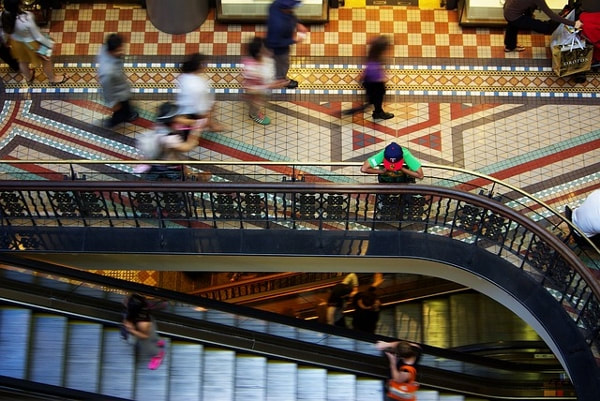So far the theory. Here’s the reality. Many, if not most, of such items are impulse buys. Even though you might believe they have been waiting just for you, they are unique, they fit in perfectly, and they are all you ever wished for, that is most likely a very fleeting feeling. I’m not saying that all such items are impulse-bought things, but sadly a lot of them actually are. Buying on impulse is usually based on cuteness or an aftereffect of advertising and tends to result in some level of regret the moment you get home and unpack it from its bag, box or packaging. You may realise you have one just like it already and had forgotten about it, in which case the question is simple: if you didn’t remember about the original item in the first place, what importance does it have in your life? And how much joy are you likely to get from another one? Wouldn’t you feel a little silly because you forgot? Another realisation may come a little later: even if the item you bought turns out to be useful or beautiful, but you find out you hugely overpaid and it was available for much less in a different shop. How would that make you feel? A bit stupid, maybe, but first and foremost you’ll have regrets about spending too much money on something rather than shopping around a little. A lot of impulse buying happens during a shopping excursion with your friends, where you end up buying a pullover you don’t need nor really desire but will buy anyway because everyone compliments you when you wear it. In this case, there is a good chance that you may add to your ever-growing pile of never worn clothes or, in the worst case, you start resenting your friends for talking you into buying it. All those things are really your responsibility alone. Blaming friends, advertising, presentation in the shop, compliments, etc. is really just an internal mechanism to let you off the hook! Impulse buying is tricky, I’m sure, but it can be avoided by going out with clear intentions to buy specific things, and nothing else. Of course, you will come across items that you like the look of, or the idea of having this in your house just sparks joy with you. love reading books and at some point in my life I went to a bookstore at least once a week. Suffice it to say, I ended up with a huge number of books, all of which I felt I had to keep. However, I also clogged up so much room with books that I had to find a solution, if only to avoid spending a lot of money on them as well. There is a simple trick that worked for me: I decided that from then on, I could go into the bookshops as much as I wanted, but I could only buy books I remembered from previous visits and that I had written on a short list (max. one book) before leaving the house. Imagine my surprise when I realised that I couldn’t really remember all that many books I would otherwise have bought straight away on my previous visit. I found that this self-imposed limit to acquiring new stuff worked out well. On a side note: this strategy also helped me realise that the books I owned weren’t meant to stay with me forever after I have read them. This revelation allowed me to let go of those books that I hadn’t read in the last 30 years and I managed to simmer down my library to just one shelf by now. Apart from books, this strategy of buying only what you set out to buy works for pretty much everything. Try it out and let me know how you get on. If you have enjoyed reading this, you may find these other articles interesting: Comments are closed.
|
Ask the ClutterMeisterIdeas to help clear away the mess in your homes and in your minds.
Feel free to share any of my posts, but please put in a backlink to the original blog post. Thank you. The author
Hi, my name is Tilo Flache. My mission: help clients declutter mind and space.
This blog contains pointers for your journey towards a happier living experience. Archives
November 2023
|



 RSS Feed
RSS Feed




